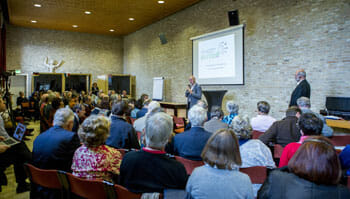
Nov 16, 2015 | Focolare Worldwide

© Thomas Mandl
More information about “Together for Europe” can be found at: www.together4europe.org
The initiative “Together for Europe” is an international network of about 300 christian movements and communities from all over Europe. It originated in 1999 and connects evangelical, Roman Catholic, Anglican and Orthodox Christians as well as members of free churches and new communities. 70 communities constitute the group “Friends of Together for Europe”.
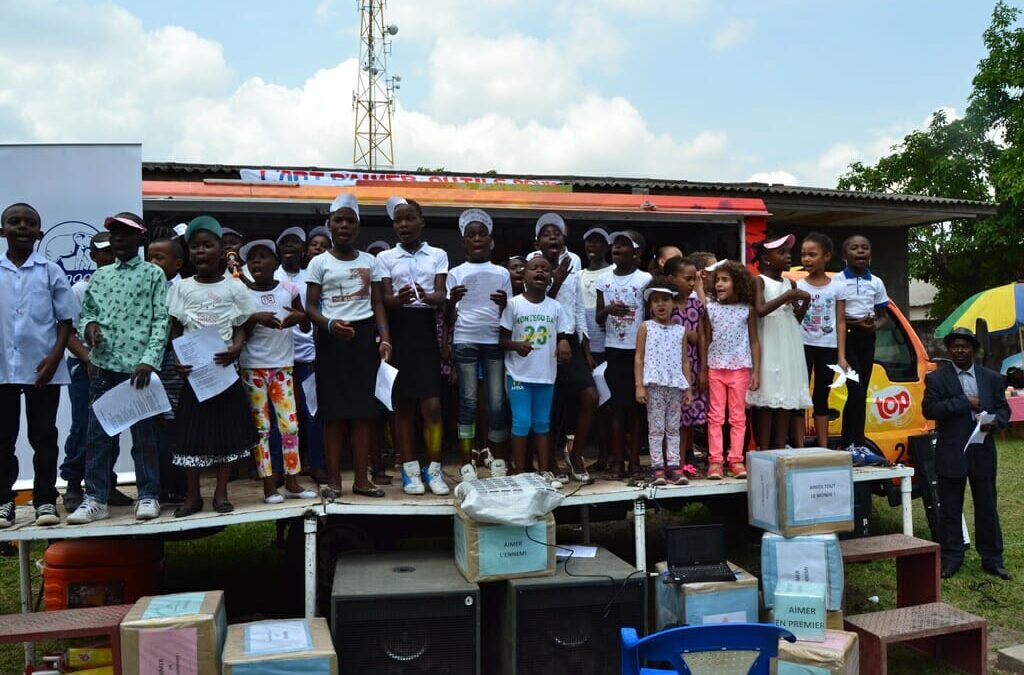
Nov 16, 2015 | Focolare Worldwide
“Just try to imagine 2,000 kids rapping in unison: “Peace! Peace! War is death, peace is love.“ https://vimeo.com/148206731 And to think that all this has been happening for decades in a country torn apart by armed conflicts, the victims of which are mostly children. Now you don’t need to dream – Martine recounts – because all this really happened last 7 November in Kinshasa in the Democratic Republic of Congo.” The art of loving for peace was, in fact, the title of the day meeting which the children of the Focolare Movement in Kinshasa held with the schools of the Petite Flamme social project which had thought of organizing an event to say: no to war and yes to peace and love, and involving their friends and other 20 schools of the city in this undertaking. On Saturday morning, under a dark sky that seemed to forecast rain but which later cleared out to a burning sun, a storm of children invaded the playgrounds of the main Petite Flamme School. Songs, dances, poems and sketches then unfolded to shout to the world that Peace is love, war is death. Also the various civil authorities, diplomats and ecclesial figures who sat in the audience were overcome with enthusiasm, along with the representatives of the Italian and German Embassies, the coordinator of the evangelical schools of Kinshasa, and about 300 children, not to mention the coordinator of the Catholic schools. 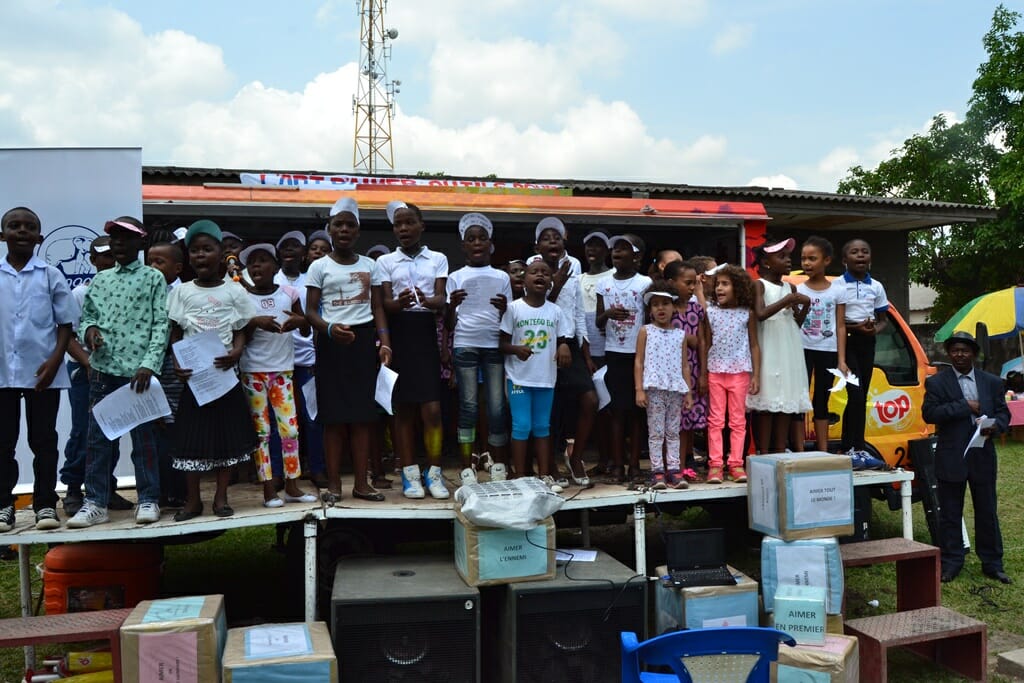 “Upon casting the Dice of love and explaining its significance – continued Martine – the children demonstrated that “peace starts with ourselves.” And the many dices that brightened the stage were them solemnly delivered in the end to every school present, as a sign of a path and commitment to peace which all had initiated together. The 22 Evangelical school directors that we involved in this initiative, expressed their enthusiasm and desire to continue working with us in these types of activities. The children were the real protagonists in the preparatory activities right from the start, with their capacity to involve everyone in the rehearsals of the songs and presentations, and the courage with which they announced and presented the meeting in a TV transmission… It was all so full of joy, enthusiasm and serious work, not to mention that even God showed his benediction through his Divine Providence! In addition there was our communion of goods and presents from parents and embassies, and even a bank sponsored the event and financed the building of the stage and sound system! The event was then broadcasted on the national TV channel, the same one that had launched the initiatives some days earlier. And we, aged 0 to 99, lived this wonderful day for peace. What remained in the depth of our hearts after seeing the joy on the faces of these children? Hope. An unwavering hope. Because the future is in good hands.”
“Upon casting the Dice of love and explaining its significance – continued Martine – the children demonstrated that “peace starts with ourselves.” And the many dices that brightened the stage were them solemnly delivered in the end to every school present, as a sign of a path and commitment to peace which all had initiated together. The 22 Evangelical school directors that we involved in this initiative, expressed their enthusiasm and desire to continue working with us in these types of activities. The children were the real protagonists in the preparatory activities right from the start, with their capacity to involve everyone in the rehearsals of the songs and presentations, and the courage with which they announced and presented the meeting in a TV transmission… It was all so full of joy, enthusiasm and serious work, not to mention that even God showed his benediction through his Divine Providence! In addition there was our communion of goods and presents from parents and embassies, and even a bank sponsored the event and financed the building of the stage and sound system! The event was then broadcasted on the national TV channel, the same one that had launched the initiatives some days earlier. And we, aged 0 to 99, lived this wonderful day for peace. What remained in the depth of our hearts after seeing the joy on the faces of these children? Hope. An unwavering hope. Because the future is in good hands.”
![Paris: New Responsibilities for Peacebuilders]()
Nov 14, 2015 | Focolare Worldwide
“In the face of the dramatic events that took place in Paris last night, in addition to those in many other areas of the world, we stand in mourning with those who have lost loved ones and with those who believe that the unity of the human family is possible. As we stand in dismay and in the firm condemnation of such acts against human life, a question becomes very clear: have we taken every step and every action possible to build the necessary conditions for preventing violence and terrorist acts – including the encouragement of equality, of more solidarity, more communion of goods? In the face of events that appear perverse, it is obvious that there is no single answer. But it is also obvious that an uncontrolled reaction to violence will not deter those who want to destroy the life forces of peoples and their aspiration to coexist in peace.  The conviction that the world can walk towards unity, and overcome confrontation and armed violence, remains alive in the spirit and in the actions of those who have love for every person and the future of the human family at heart, and want to bring it about through political action, through the right use of economy, and the rule of law. The Focolare Movement, while it weeps with those who weep, continues to believe in the path of dialogue, of acceptance and of respect for the other, whoever that may be and from whatever background, religious belief, and ethnicity. Therefore, together with all those working for peace, in various posts of responsibility and often at risk to themselves, the Focolare renews its commitment to intensify and multiply acts and gestures of reconciliation, opportunities for dialogue and communion, for encounter and sharing at all levels and in all parts of the world, so as to embrace the cry of humanity and transform it into new hope.”
The conviction that the world can walk towards unity, and overcome confrontation and armed violence, remains alive in the spirit and in the actions of those who have love for every person and the future of the human family at heart, and want to bring it about through political action, through the right use of economy, and the rule of law. The Focolare Movement, while it weeps with those who weep, continues to believe in the path of dialogue, of acceptance and of respect for the other, whoever that may be and from whatever background, religious belief, and ethnicity. Therefore, together with all those working for peace, in various posts of responsibility and often at risk to themselves, the Focolare renews its commitment to intensify and multiply acts and gestures of reconciliation, opportunities for dialogue and communion, for encounter and sharing at all levels and in all parts of the world, so as to embrace the cry of humanity and transform it into new hope.”
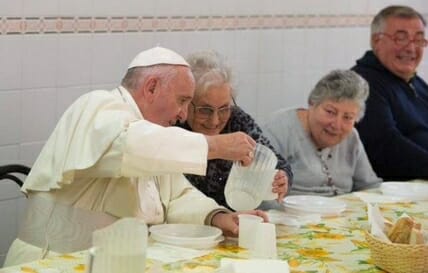
Nov 14, 2015 | Focolare Worldwide
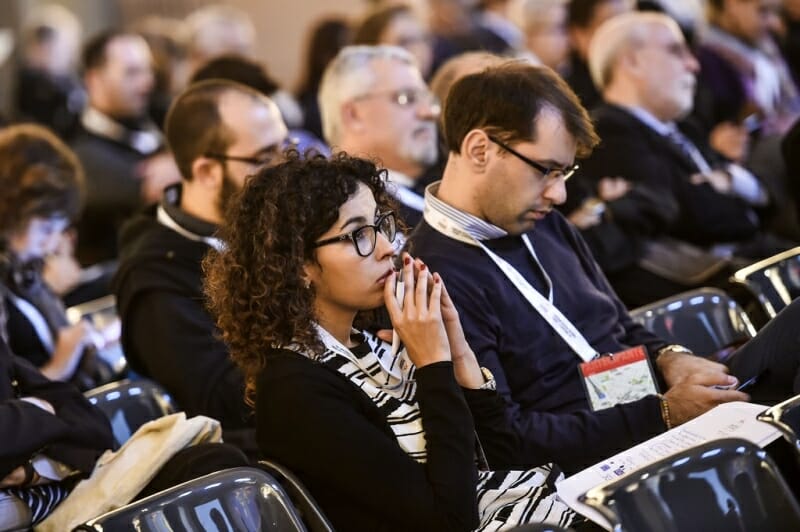
The Fifth National Ecclesial Convention in Florence, Italy, (November 9-13), Foto: Cristian Gennari/Siciliani

Pope Francis having lunch at the soup kithen. Photo: Ansa
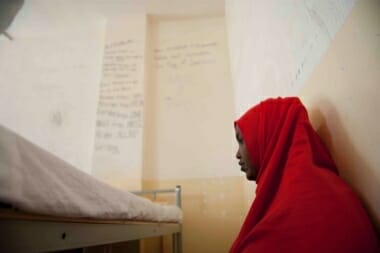
Nov 13, 2015 | Focolare Worldwide, Senza categoria
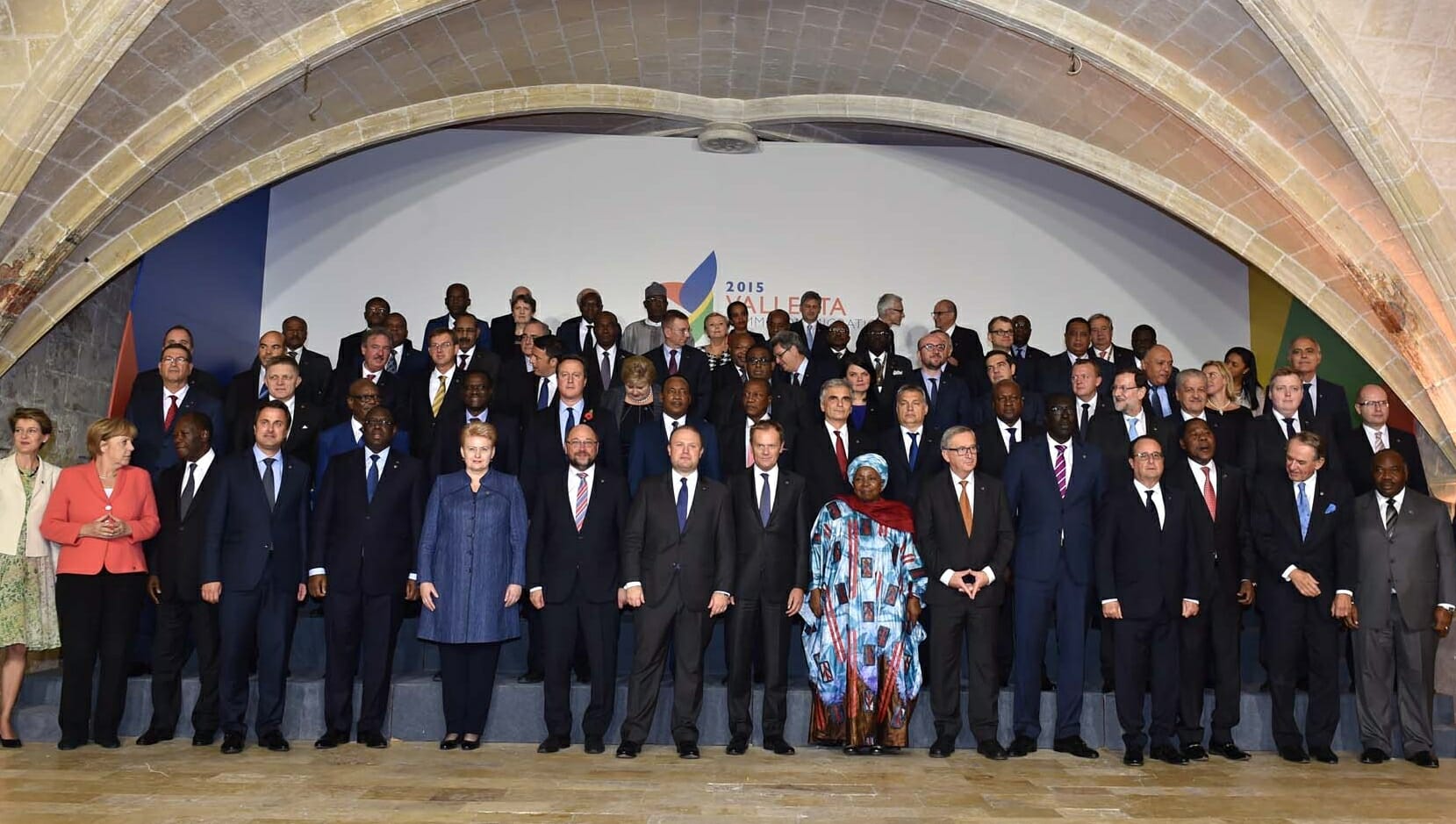
European Union and African nation leaders present at the Valletta Summit on Migration (Malta, 11-12 November 2015)
 In one centre they held English classes; provided useful information about Malta; and simply spent time with the migrants. In another centre that welcomed families, they provided child care and tried to meet the basic needs of the little ones. Later, when they received permission, the Volunteers also went into the detention centres, Anna recounted: “The refugees were in rooms with bunk beds, even twelve per room, and there was not enough room for everyone. At first they were shocked, but seeing that we only wanted to befriend them, they overcame their mistrust. From English lessons we also moved on to more enjoyable moments with music and dance; and the guards remarked that they had never seen them so happy.” The young people of the Focolare Movement also became involved, inviting the refugees to events for teenagers such as the Run4Unity; and to the Mariapolis for a few days of meetings with Focolare friends and sympathisers. “Our project is beginning to gain visibility,” Anna concluded, “and we were asked to present our experience to the other Ecclesial Movements.”
In one centre they held English classes; provided useful information about Malta; and simply spent time with the migrants. In another centre that welcomed families, they provided child care and tried to meet the basic needs of the little ones. Later, when they received permission, the Volunteers also went into the detention centres, Anna recounted: “The refugees were in rooms with bunk beds, even twelve per room, and there was not enough room for everyone. At first they were shocked, but seeing that we only wanted to befriend them, they overcame their mistrust. From English lessons we also moved on to more enjoyable moments with music and dance; and the guards remarked that they had never seen them so happy.” The young people of the Focolare Movement also became involved, inviting the refugees to events for teenagers such as the Run4Unity; and to the Mariapolis for a few days of meetings with Focolare friends and sympathisers. “Our project is beginning to gain visibility,” Anna concluded, “and we were asked to present our experience to the other Ecclesial Movements.”
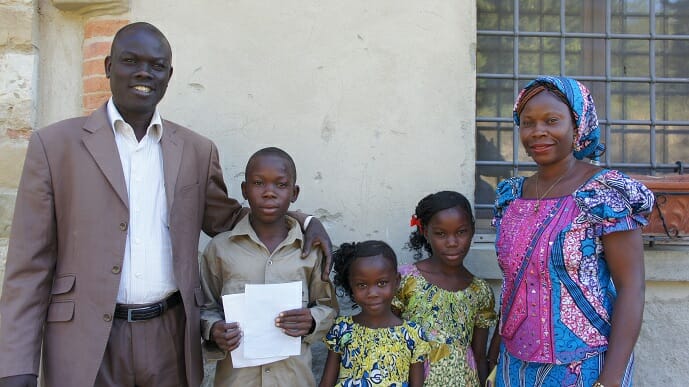
Nov 11, 2015 | Focolare Worldwide

The Molu family





 “Upon casting the Dice of love and explaining its significance – continued Martine – the children demonstrated that “peace starts with ourselves.” And the many dices that brightened the stage were them solemnly delivered in the end to every school present, as a sign of a path and commitment to peace which all had initiated together. The 22 Evangelical school directors that we involved in this initiative, expressed their enthusiasm and desire to continue working with us in these types of activities. The children were the real protagonists in the preparatory activities right from the start, with their capacity to involve everyone in the rehearsals of the songs and presentations, and the courage with which they announced and presented the meeting in a TV transmission… It was all so full of joy, enthusiasm and serious work, not to mention that even God showed his benediction through his Divine Providence! In addition there was our communion of goods and presents from parents and embassies, and even a bank sponsored the event and financed the building of the stage and sound system! The event was then broadcasted on the national TV channel, the same one that had launched the initiatives some days earlier. And we, aged 0 to 99, lived this wonderful day for peace. What remained in the depth of our hearts after seeing the joy on the faces of these children? Hope. An unwavering hope. Because the future is in good hands.”
“Upon casting the Dice of love and explaining its significance – continued Martine – the children demonstrated that “peace starts with ourselves.” And the many dices that brightened the stage were them solemnly delivered in the end to every school present, as a sign of a path and commitment to peace which all had initiated together. The 22 Evangelical school directors that we involved in this initiative, expressed their enthusiasm and desire to continue working with us in these types of activities. The children were the real protagonists in the preparatory activities right from the start, with their capacity to involve everyone in the rehearsals of the songs and presentations, and the courage with which they announced and presented the meeting in a TV transmission… It was all so full of joy, enthusiasm and serious work, not to mention that even God showed his benediction through his Divine Providence! In addition there was our communion of goods and presents from parents and embassies, and even a bank sponsored the event and financed the building of the stage and sound system! The event was then broadcasted on the national TV channel, the same one that had launched the initiatives some days earlier. And we, aged 0 to 99, lived this wonderful day for peace. What remained in the depth of our hearts after seeing the joy on the faces of these children? Hope. An unwavering hope. Because the future is in good hands.”  The conviction that the world can walk towards unity, and overcome confrontation and armed violence, remains alive in the spirit and in the actions of those who have love for every person and the future of the human family at heart, and want to bring it about through political action, through the right use of economy, and the rule of law. The Focolare Movement, while it weeps with those who weep, continues to believe in the path of dialogue, of acceptance and of respect for the other, whoever that may be and from whatever background, religious belief, and ethnicity. Therefore, together with all those working for peace, in various posts of responsibility and often at risk to themselves, the Focolare renews its commitment to intensify and multiply acts and gestures of reconciliation, opportunities for dialogue and communion, for encounter and sharing at all levels and in all parts of the world, so as to embrace the cry of humanity and transform it into new hope.”
The conviction that the world can walk towards unity, and overcome confrontation and armed violence, remains alive in the spirit and in the actions of those who have love for every person and the future of the human family at heart, and want to bring it about through political action, through the right use of economy, and the rule of law. The Focolare Movement, while it weeps with those who weep, continues to believe in the path of dialogue, of acceptance and of respect for the other, whoever that may be and from whatever background, religious belief, and ethnicity. Therefore, together with all those working for peace, in various posts of responsibility and often at risk to themselves, the Focolare renews its commitment to intensify and multiply acts and gestures of reconciliation, opportunities for dialogue and communion, for encounter and sharing at all levels and in all parts of the world, so as to embrace the cry of humanity and transform it into new hope.” 


 In one centre they held English classes; provided useful information about Malta; and simply spent time with the migrants. In another centre that welcomed families, they provided child care and tried to meet the basic needs of the little ones. Later, when they received permission, the Volunteers also went into the detention centres, Anna recounted: “The refugees were in rooms with bunk beds, even twelve per room, and there was not enough room for everyone. At first they were shocked, but seeing that we only wanted to befriend them, they overcame their mistrust. From English lessons we also moved on to more enjoyable moments with music and dance; and the guards remarked that they had never seen them so happy.” The young people of the Focolare Movement also became involved, inviting the refugees to events for teenagers such as the Run4Unity; and to the Mariapolis for a few days of meetings with Focolare friends and sympathisers. “Our project is beginning to gain visibility,” Anna concluded, “and we were asked to present our experience to the other Ecclesial Movements.”
In one centre they held English classes; provided useful information about Malta; and simply spent time with the migrants. In another centre that welcomed families, they provided child care and tried to meet the basic needs of the little ones. Later, when they received permission, the Volunteers also went into the detention centres, Anna recounted: “The refugees were in rooms with bunk beds, even twelve per room, and there was not enough room for everyone. At first they were shocked, but seeing that we only wanted to befriend them, they overcame their mistrust. From English lessons we also moved on to more enjoyable moments with music and dance; and the guards remarked that they had never seen them so happy.” The young people of the Focolare Movement also became involved, inviting the refugees to events for teenagers such as the Run4Unity; and to the Mariapolis for a few days of meetings with Focolare friends and sympathisers. “Our project is beginning to gain visibility,” Anna concluded, “and we were asked to present our experience to the other Ecclesial Movements.”
